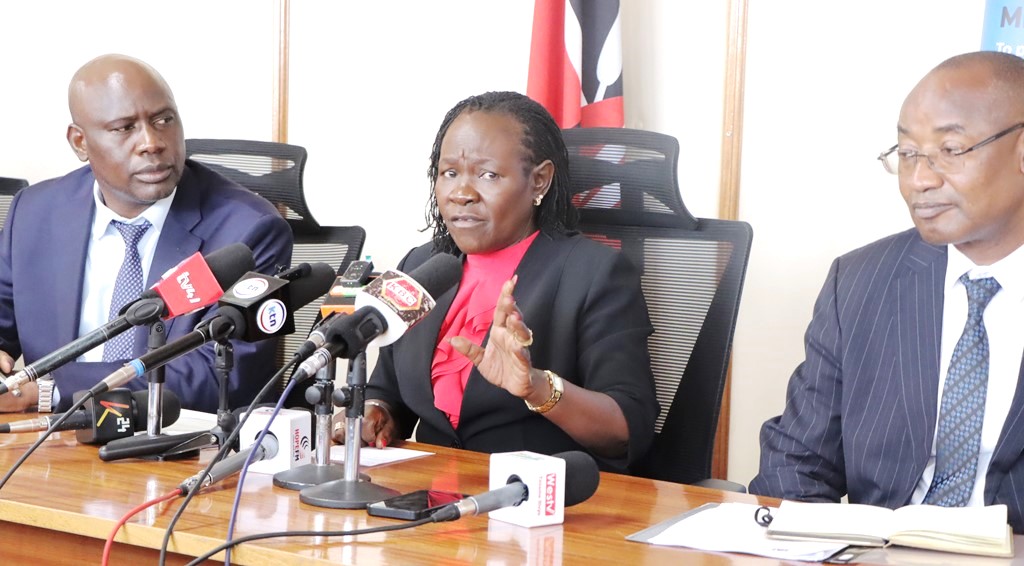Acting Director General and Chief Executive Officer (CEO) of the Kenya National Qualifications Authority (KNQA) Dr. Alice Kande has urged participants in the Kenya Credit Accumulation and Transfer System (KCATS) conference to formulate policies that align with the recommendations of the Presidential Working Party on Education Reforms (PWPER).
At the official opening of the conference at Lake Naivasha Resort Hotel today, Dr. Kande provided insights into the global discourse on the validation and recognition of learning, noting the three primary modes of the process as recognition of qualifications, credit accumulation and transfer systems, and recognition of prior learning.
Dr. Kande highlighted the importance of the workshop in generating a critical instrument that guides learner progression, facilitates access and mobility, and ensures transparency, efficiency and quality in education and training.
The event has brought together stakeholders from various sectors to engage in discussions crucial to the development of a comprehensive national CATS policy.
Delving into the legislative framework and citing the KNQF Act No. 22 of 2014, she underscored the importance of the Kenya Credit Accumulation and Transfer System, noting its role in enhancing skills development and transferability, as well as facilitating lifelong learning.
She positioned CATS as a vital tool for recognizing and validating formal learning, enabling the mobility of learners without duplicating efforts.
Addressing the ongoing review of the KCATS policy launched in November 2021, Dr. Kande stressed the need for a national and global situational analysis, particularly considering the advanced stage of implementing the Africa Continental Qualifications Framework (ACQF).
She highlighted the ACQF Guideline on CATS, which serves as a reference for principles, criteria and processes, encouraging voluntary cooperation among nations.
In detailing the computation of credits, Dr. Kande explained two systems aligning Kenya’s approach with countries like South Africa, Lesotho, Zambia, and Botswana. She outlined the key principles of CATS, emphasizing transparency, fairness, flexibility, and the importance of quality assurance measures.
She expressed confidence in the participants’ ability to contribute to stimulating and productive discussions during the five-day workshop.
By Viola Chepkemoi
Get more stories from our website: Education News
To write to us or offer feedback, you can reach us at: editor@educationnews.co.ke
You can also follow our social media pages on Twitter: Education News KE and Facebook: Education News Newspaper for timely updates.
>>> Click here to stay up-to-date with trending regional stories






